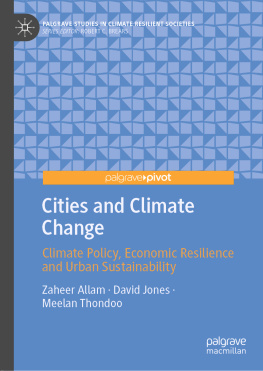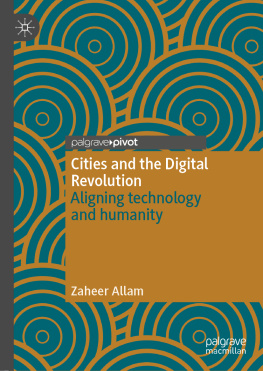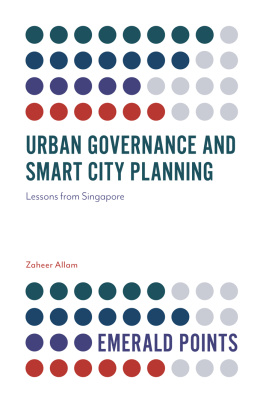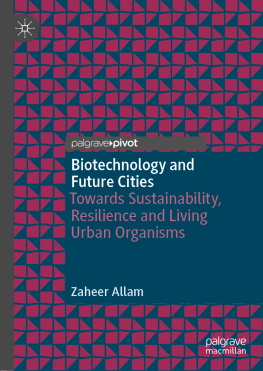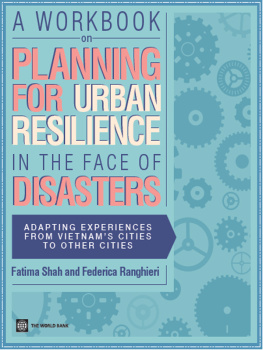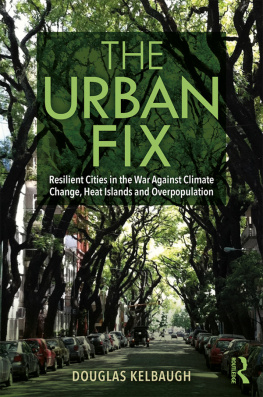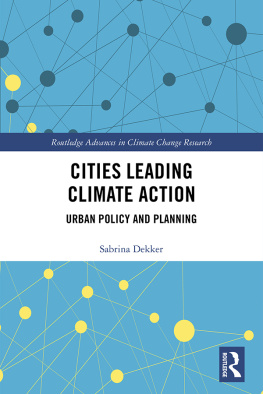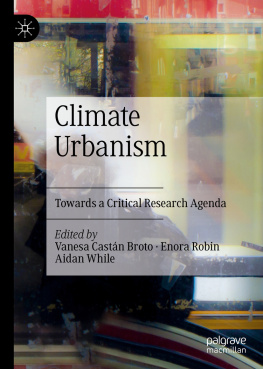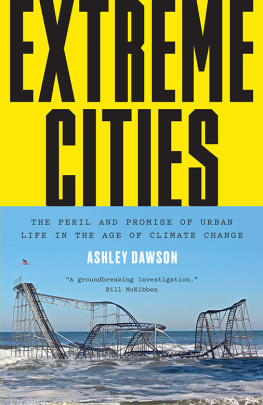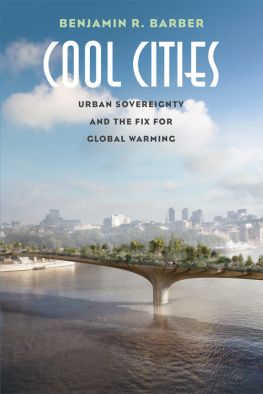Zaheer Allam - Cities and Climate Change: Climate Policy, Economic Resilience and Urban Sustainability
Here you can read online Zaheer Allam - Cities and Climate Change: Climate Policy, Economic Resilience and Urban Sustainability full text of the book (entire story) in english for free. Download pdf and epub, get meaning, cover and reviews about this ebook. year: 2020, publisher: Springer Nature, genre: Politics. Description of the work, (preface) as well as reviews are available. Best literature library LitArk.com created for fans of good reading and offers a wide selection of genres:
Romance novel
Science fiction
Adventure
Detective
Science
History
Home and family
Prose
Art
Politics
Computer
Non-fiction
Religion
Business
Children
Humor
Choose a favorite category and find really read worthwhile books. Enjoy immersion in the world of imagination, feel the emotions of the characters or learn something new for yourself, make an fascinating discovery.
- Book:Cities and Climate Change: Climate Policy, Economic Resilience and Urban Sustainability
- Author:
- Publisher:Springer Nature
- Genre:
- Year:2020
- Rating:5 / 5
- Favourites:Add to favourites
- Your mark:
- 100
- 1
- 2
- 3
- 4
- 5
Cities and Climate Change: Climate Policy, Economic Resilience and Urban Sustainability: summary, description and annotation
We offer to read an annotation, description, summary or preface (depends on what the author of the book "Cities and Climate Change: Climate Policy, Economic Resilience and Urban Sustainability" wrote himself). If you haven't found the necessary information about the book — write in the comments, we will try to find it.
Zaheer Allam: author's other books
Who wrote Cities and Climate Change: Climate Policy, Economic Resilience and Urban Sustainability? Find out the surname, the name of the author of the book and a list of all author's works by series.
Cities and Climate Change: Climate Policy, Economic Resilience and Urban Sustainability — read online for free the complete book (whole text) full work
Below is the text of the book, divided by pages. System saving the place of the last page read, allows you to conveniently read the book "Cities and Climate Change: Climate Policy, Economic Resilience and Urban Sustainability" online for free, without having to search again every time where you left off. Put a bookmark, and you can go to the page where you finished reading at any time.
Font size:
Interval:
Bookmark:
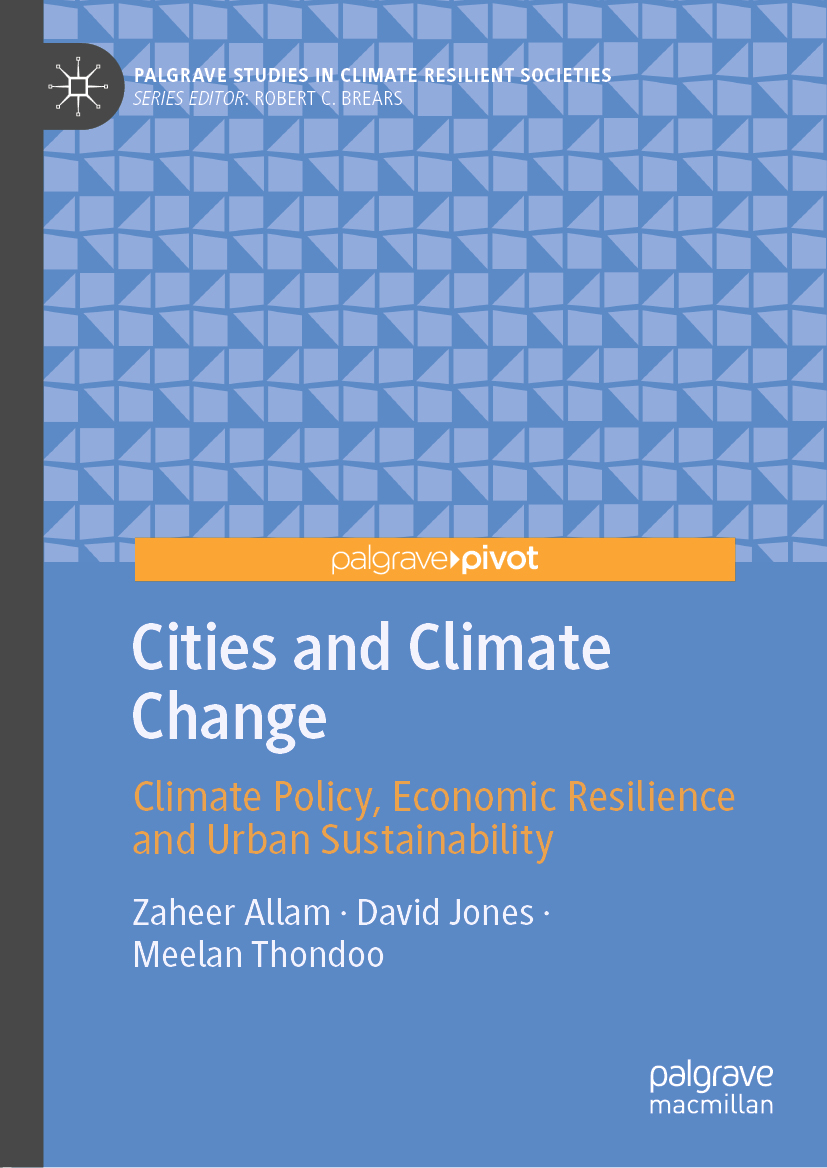
The Palgrave Studies in Climate Resilient Societies series provides readers with an understanding of what the termsresilience and climate resilientsocieties mean; the best practices and lessons learnt from various governments, in both non-OECD and OECD countries, implementing climate resilience policies (in other words what is desirable or undesirable when building climate resilient societies); an understanding of what a resilient society potentially looks like; knowledge of when resilience building requires slow transitions or rapid transformations; and knowledge on how governments can create coherent, forward-looking and flexible policy innovations to build climate resilient societies that: support the conservation of ecosystems; promote the sustainable use of natural resources; encourage sustainable practices and management systems; develop resilient and inclusive communities; ensure economic growth; and protect health and livelihoods from climatic extremes.
More information about this series at http://www.palgrave.com/gp/series/15853

Cover illustration: Melisa Hasan
This Palgrave Macmillan imprint is published by the registered company Springer Nature Switzerland AG
The registered company address is: Gewerbestrasse 11, 6330 Cham, Switzerland
Humankind has a rich history, and as the story of man and its relationship with their world unfolds, we are taken into episodes of conquests, pain, and love. But just like any story has a takeaway, ours will most definitely be that of survival. And I truly believe thisand maybe this is my optimistic nature, that we are a triumphant society, and just like we did numerous times through the episodes of war, of famine, or of crisis, we persevered, and we survived! So today, when we talk about climate change as the single most critical event of our lifetime, we need to take a few steps back and look at our history from a critical lens, we need to acknowledge the dire consequencesthe science behind it, and we need to also take into account the incredible resilience of humankind. While I will personally not be here to witness this act of resilience, I will ask of the next generations to be hopeful in the future and to trust the ability of humankind for survival. But of course, this does not mean that while knowing that we are living in an era of crisis, that we can carry on business as usual. This act of survival starts now!
I have had a long and rich career in policy making at both national and international level, and have had the opportunity to travel to countless conferenceswhich by now must be in hundreds, and I have seen the slow but steady shift of topics addressed to include more sustainably inclined agendas. Of course, I often say that sustainability in itself is not new or can be interpreted as being novel, as in reality it has been on the agenda for over 30 years, since the establishment of the Intergovernmental Panel for Climate Change (IPCC). And I often, even though my diplomatic training, find it frustrating that sometimes we end up reiterating the same arguments in conferences or meetings globally, and I at times call for more actions rather than more resolutions. But to be honest, the process of change is an important of, as disruption calls for conflicts and inequalities. So, as an experienced Politian, and someone with an experience in the processes of the United Nations, speaking about resolutions and reiterating those conversations are important too for the sake of global prosperity. Ultimately, it is those processes that trickle down to action at local level, but acknowledging that this process takes time, we can also pre-empt and work on our own localised policies. This is where we need good politicians that understand the crisis of our time, the geopolitical context, and local economics. The last point is key, as I truly believe that is it through economics that we can drive change; even environmental.
So, what are the economics of survival? And how can economics be applied in the field of environment while keeping the global agendas of prosperity that those lengthy resolutions support? This is where I believe our innovative spirit is needed, and where we need to break away from our resistance to change. As if we want to address climate change, and if we look at the economics, there is a lot of money to be made while saving the planet. It is not only a philanthropic endeavour. We see how the sales of renewable energy is trumping that from coal, the sales of electric cars dethroning petrol ones, amongst others. So why not join this shift where we can not only make money, but also help in the redistribution of wealth through the disruption of global monopolies. What is interesting here is that we are seeing action on climate change also equating to action towards bridging the gap of social disparities; which is the key in sustaining healthy communities. Having witnessed this shift of innovative disruption from our traditional linear thinking in a matter of two decades is what, as a politician and diplomat, makes me hopeful for the future.
Font size:
Interval:
Bookmark:
Similar books «Cities and Climate Change: Climate Policy, Economic Resilience and Urban Sustainability»
Look at similar books to Cities and Climate Change: Climate Policy, Economic Resilience and Urban Sustainability. We have selected literature similar in name and meaning in the hope of providing readers with more options to find new, interesting, not yet read works.
Discussion, reviews of the book Cities and Climate Change: Climate Policy, Economic Resilience and Urban Sustainability and just readers' own opinions. Leave your comments, write what you think about the work, its meaning or the main characters. Specify what exactly you liked and what you didn't like, and why you think so.

